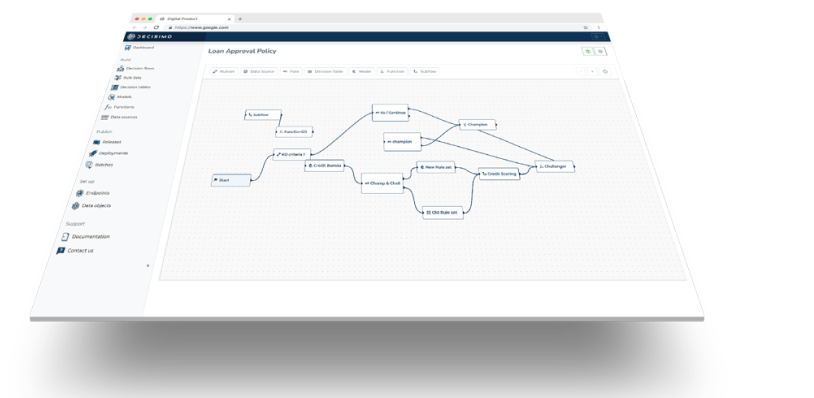6 reasons to use a rule engine instead of Python code - Decisimo - Decision Intelligence Services
Published on: 2024-08-10 18:36:09
Some companies may choose to start with having decision logic in code and continue doing so, especially by using Python code. In some moments it can start being a problematic choice and it may be smarter to move to a usage of a rule engine. There are many reasons why to choose to use a rule engine:
Save time and resources
Writing and maintaining custom Python code can be a labor-intensive and time-consuming process, especially for a large financial company that may have many different systems and processes in place. By using a rule engine, the company can automate many of these processes and reduce the amount of time and effort required to maintain them. This can free up resources that can be used for other important tasks, such as developing new products and services or improving customer experiences.
Improve accuracy and consistency
Rule engines are designed to be reliable and consistent, and they can help ensure that the company's systems and processes are operating correctly and efficiently. This can help prevent errors and mistakes that can have serious consequences in the financial industry. Additionally, rule engines can help ensure that the company's systems and processes are compliant with regulatory requirements, which is essential for maintaining the trust of customers and regulators.
Provide flexibility and adaptability
Rule engines are highly customizable, and they can be easily modified and updated to meet changing business needs and requirements. This can help the company stay agile and adapt to new challenges and opportunities in the rapidly-evolving financial landscape. Additionally, using a rule engine can help the company integrate its systems and processes with those of other organizations.
Improve collaboration and sharing
Rule engines are often designed to be used by multiple users and teams, and they can provide a centralized platform for managing and sharing rules and policies. This can help improve collaboration and communication within the company, and it can also make it easier for the company to share its rules and policies with other organizations, such as regulators or partners.
Reduce the risk of security breaches and vulnerabilities
Rule engines are typically built with security in mind, and they can help protect the company's systems and data from unauthorized access and attacks. This can reduce the risk of security breaches and vulnerabilities, which can have serious consequences for the company and its customers. Additionally, using a rule engine can help the company comply with security standards and regulations, which is essential for maintaining the trust of customers and regulators.
Manage complexity
Where the system needs to handle multiple complex rules, rule engines can provide the structure needed to make sure all the rules are correctly applied and maintained. Rule engines with a good user interface provide the ability for business users to navigate the decision logic in a much easier way than Python code.
Conclusion
Using a rule engine can save time and resources, improve accuracy and consistency, provide flexibility and adaptability, improve collaboration and sharing, reduce the risk of security breaches and vulnerabilities, and help manage complexity. This makes it an optimal choice for organizations looking to streamline and automate their systems and processes while also helping to ensure they remain compliant with regulatory requirements.


